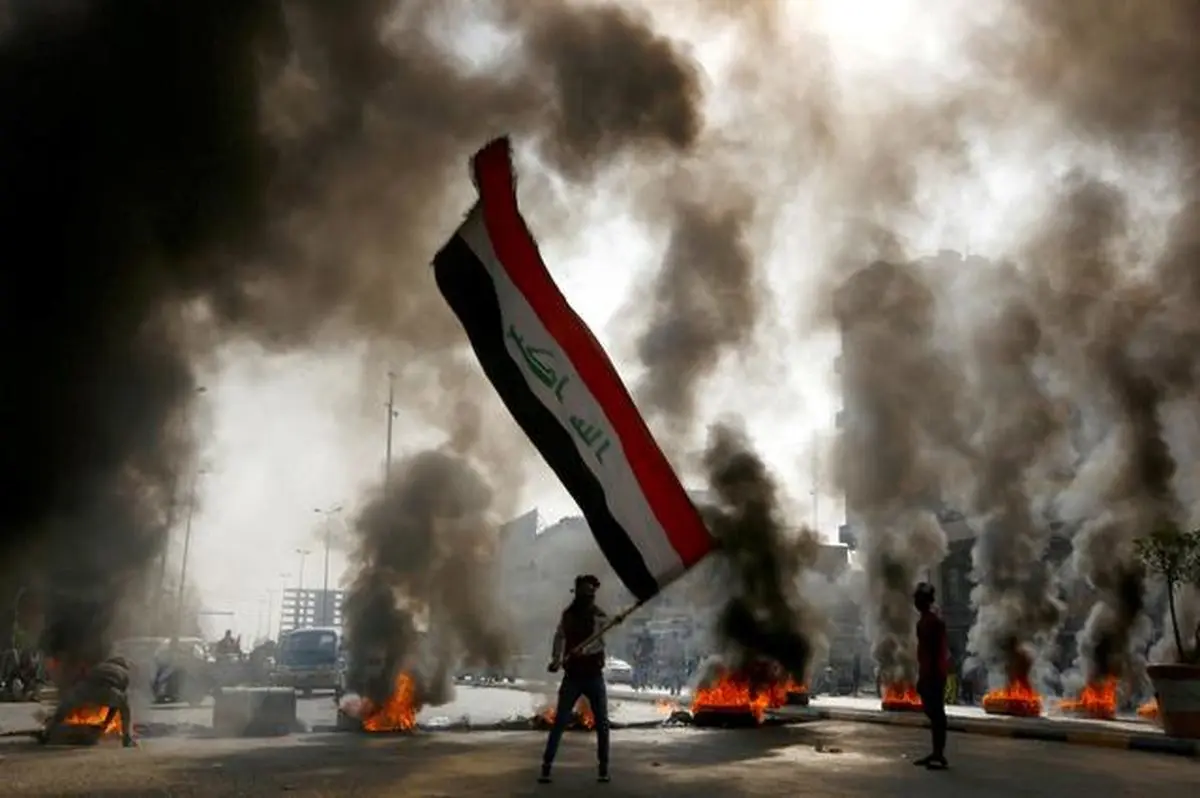Threats, arrests, targeted killings silence Iraqi dissidents

After armed men raided the home of Hussein Adel al-Madani and his wife Sara Talib last year, the Iraqi activists spent months of self-imposed exile in Turkey, changed address upon returning home and ceased participating in protests, according to two friends of the couple.
According to Reuters, but a day after anti-government demonstrations erupted in Baghdad in October, unidentified gunmen believed by activists to be working on behalf of militia shot the couple dead in their home in the southern city of Basra, said the friends and two security sources familiar with the incident. Sara was several months pregnant.
“It was a message. No matter who you are, how peacefully you object - if you go out and demonstrate, you’ll be threatened, locked up, or killed,” said one of the friends, an activist who gave the name Abbas, an alias, for fear of reprisal from armed groups.
Reuters interviews with five officials and more than half a dozen Iraqi rights activists depict a pattern of mass arrests, intimidation and torture, and in some cases targeted killings of Iraqi protesters.
On Friday, Iraqi Prime Minister Adel Abdul Mahdi announced his resignation following weeks of protests calling for the removal of a government viewed as corrupt and the powerful paramilitary groups that support it. Iraqis say the resignation alone will not curb the power of corrupt officials or armed groups.
At least six activists have been shot dead in or near their homes over the past year in what appear to be targeted assassinations, according to activists and one government official. The official and the activists said they believed militia was behind the deaths because those killed had been openly critical of the militias and had also received threats based on their anti-government.
The number of targeted killings and details of intimidation tactics used in the crackdown have not previously been reported. Several activists say it amounts to what they view as a campaign intended to silence dissidents and is causing them to abandon protests or consider fleeing the country.
An Iranian official, who spoke on the condition of anonymity, said accusations of killings and threats by militias Tehran supports were “baseless.”
Ahmed al-Asadi, a spokesman for the state umbrella grouping of paramilitary factions that include the biggest Iran-backed militias, could not be reached for comment. The body has previously denied any involvement in killing protesters and activists.
Iraqi government spokesman Saad al-Hadithi declined to comment on the assassination of activists.
Iraqi authorities say they have arrested and released some 2,500 protesters, with another 240 detained on criminal charges. More than 400 people have been killed since October during the biggest challenge to Iraq’s Shi’ite Muslim-dominated, Iran-backed political class that emerged after a 2003 U.S.-led invasion which toppled dictator Saddam Hussein.
The protesters, many under the age of 30, represent a cross-section of society clamoring for an overhaul of the post-2003 political system, which they say has plundered the state’s resources including abundant oil and pushed ordinary people into poverty. They have become increasingly critical of Iran’s dominant role in the country.
According to two Iraqi security officials, it is not uncommon for those detained to be beaten, electrocuted and forced to sign pledges not to demonstrate or speak to media. Heads of Iraqi security services have given their forces operating in Iraq the green light to detain “anyone they suspect of being a security threat or involved in inciting unrest,” one of the Iraqi security officials said.
The Iraq government spokesman, al-Hadithi, denied that those detained had been tortured or subjected to violence, adding that the Justice Ministry and Supreme Judicial Council were overseeing the questioning of those arrested. He denied that security services or the military were detaining peaceful protesters.
If activists do have evidence of torture, it should be investigated, said Abdul Karim Khalaf, a government military and security spokesman. But, he added, “we have not had any confirmation of this happening.”
Iraqi authorities say some protesters have tried to incite violence after properties in Baghdad and the headquarters of several in southern cities were burned. More than a dozen members of the security forces have been killed and scores injured in the unrest, authorities add.
END
